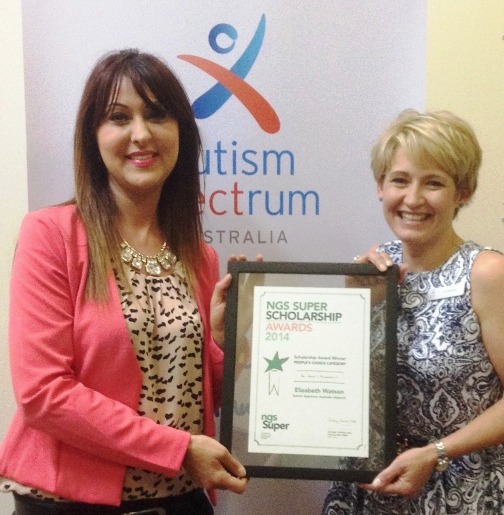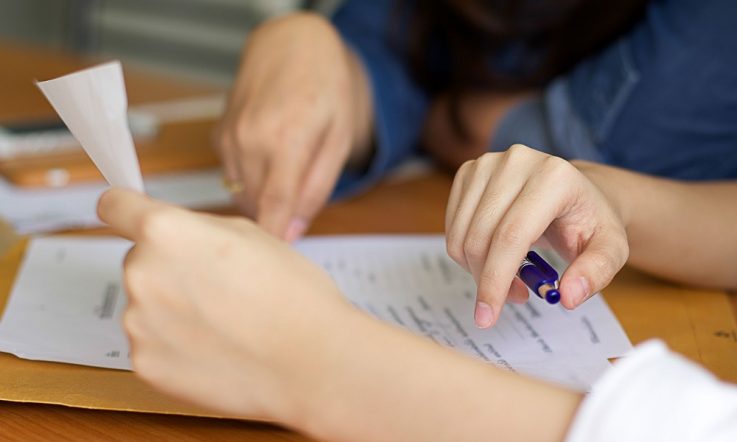During a Christmas holiday to New Zealand a couple of years ago I went kayaking with a group that included a teacher from Melbourne. We got chatting and I discovered she was on a four day break - three of which had been set aside for a professional learning workshop.
Now, I'm not suggesting you convince the family to plan their holiday bucket list around conference venues (although I get the feeling that some of you are already pros at this). There are lots of different opportunities out there.
Research shows that learning from other educators is a great way to improve your own practice. Here are just a few options to explore.
Scholarships: A trip to Harvard
Okay, so you've spotted a great course that you want to attend in person, but it happens to be on the other side of the world. Applying for a scholarship can be one way to fund the trip.
Mark Burnard, Principal of Chifley College - Bidwell Campus, was awarded a Public Education Foundation Harvard Club of Australia Education Scholarship last year.
'It was a week-long conference at Harvard at their Summer School, run by the Graduate School of Education over there,' Burnard tells Teacher. 'I'd never have considered going over to Harvard and getting involved in something like that without the scholarship.'
More than 150 school leaders and principals from countries such as the United States, England and New Zealand took part in the conference, which included daily presentations from experts and small group sessions for further discussion and reflection.
Burnard says being able to build relationships face-to-face with school leaders from different parts of the world, different cultures and different education systems was refreshing.
'... we were able to have a good dialogue and share ideas, learn about the issues that they're confronting every day [and how they're dealing with them], so that sort of experience was really valuable. It helped me reflect on my work, but also gave me a renewed respect [for] what's done here within Australia and within public education here in Australia - I thought that what we're doing here holds up very well.'
Scholarships: Specialist training
Liz Watson is a Coordinator at Aspect Macarthur School, Cobbitty, New South Wales. It is one of eight independent schools in the state that are part of Autism Spectrum Australia.
The school works with students to address Autism Spectrum Disorder (ASD) issues, to transition them to 'satellite' or mainstream classes. It also offers an outreach service, providing support and professional development to other schools.
The pedagogy approach used by Aspect Macarthur is based on the TEACCH Autism Program, developed by the University of North Carolina.
'We have a model class here for TEACCH ... and we offer structured teacher training for other schools (not only Aspect schools, but from the department or Catholic education),' Watson explains.
'I've participated in two-day training here (the training we give our staff and deliver for other staff). Before I moved here I lived in Western Australia and did a one-day teacher training course, which is an abridged version. But, because I supervise staff and need to provide feedback around structured teaching I thought, in terms of my personal development, it's an area I could develop further.'
Watson was recently awarded a $5000 NGS Super People's Choice Award, which will cover the cost of attending a five-day course in the US.

Liz Watson, right, receives her scholarship award from by Jorjet Issavi, NSW Client Relationship Manager, NGS Super.
For information on Structured teaching professional learning opportunities or the school's outreach services contact macarthur@autismspectrum.org.au or call 02 4651 3901. For general information on ASD visit www.autismspectrum.org.au
International school links: Making connections
Forming professional development links with a school in another country is a good way to share experiences and learning.
Debra Evans initiated a New Zealand Teacher Exchange Program (see video at the top of this page) with a school in Rotorua after connecting through the Middle Years of Schooling Association (MYSA).
Evans is Assistant Principal at Mount Alvernia College, a non-government secondary school in the Brisbane suburb of Kedron.
The development of the exchange program initiative has been highlighted by AITSL (the Australian Institute for Teaching and Leadership) in its Illustrations of Practice video series as an example of Lead practice.
'I thought, this is a perfect opportunity to engage in some professional development ... where teachers can make connections,' Evans tells AITSL. 'For me, going into a school has always been the best professional development that I could experience.'
[Debra Evans initiated a New Zealand Teacher Exchange Program with a school in Rotorua. Video © AITSL.]
For information on the particular Australian Professional Standards for Teachers the above example highlights, visit this link and click on 'Standards' on the right hand menu.
Online PLNs: A stimulus for learning
Jarrod Lamshed is Senior Leader at Woodend Primary School, Adelaide. He started using social media to create an online PLN (Professional Learning Network) six years ago.
'Now it's become a really integral part of where I find a lot of my new learning,' he tells Teacher. 'That's not to say that all the learning happens in that space, because you sort of follow the line of tweets and click the links ... and those things spark interest and professional reading.

Image: © Shutterstock/Quka
‘For me, it opens up my learning [beyond] the walls of my school. I've been able to develop a [network with a] range of international educators, some in general classroom practice, others are keynote speaker-type people. Those social media spaces are really the network - that's where you go to get the links, to find people who are more of an expert than you who can point you in the right direction.
Lamshed says how much time you spend developing your online PLN is really up to you, but has this piece of advice: 'It's important to give as well as take in those spaces, it's not a great idea to just check-in when you want something.'
You can connect with Jarrod Lamshed through his blog and Twitter feed (@jlamshed).
Online PLNs: Engaging with the community
After being introduced to Twitter five years ago, Craig Kemp admits he gave up after two months - but returned to it two years ago and now 'can't get enough'.
The Head of ICT and Learning Innovation at an Australian curriculum international school in Singapore tells Teacher it's his 'go-to place to learn with amazing like-minded education professionals'.
As well as creating a PLN to connect, collaborate and learn new things, Kemp also likes to discuss hot topics and get the answer to burning questions. 'I also share my passions and knowledge as well and engage in professional conversations through weekly Twitter Chats.' (Kemp is co-founder of #whatisschool)
'Being able to connect with the BEST in education anywhere, anytime, 24/7 is the most incredible experience ever. I can throw out a question and have 20 answers within minutes, linking me to resources, articles and engaging opportunities.'
Here are Craig Kemp's 10 tips for creating the perfect educational Twitter account. You can also find him on Twitter @mrkempnz.
Visiting a local school: Professional dialogue
You don't have to travel thousands of kilometres to learn from other educators - local schools are often a rich source of expertise, and they're right on your doorstep.
Our Lady Queen of Peace (OLQP) primary shares a site in Sydney, and professional learning, with St Paul's College and OLQP Early Learning Centre. Discussing reading comprehension strategies, tracking student progress across primary and secondary years, is just one example of how teachers are learning from each other.
'Many teachers from neighbouring schools have visited OLQP to observe classroom management, literacy and numeracy blocks, and our staff have visited other schools to observe similar processes and programs,' Principal Michael Hopley says.
'The discussion that follows these visits has had a real effect on changing practice. The professional dialogue that has occurred has affirmed the work done by our staff and at the same time they have learned new techniques from [colleagues] in other schools.'
Are you currently undertaking a professional learning activity?
What led you to choose that particular option?
What have been the benefits or drawbacks?



